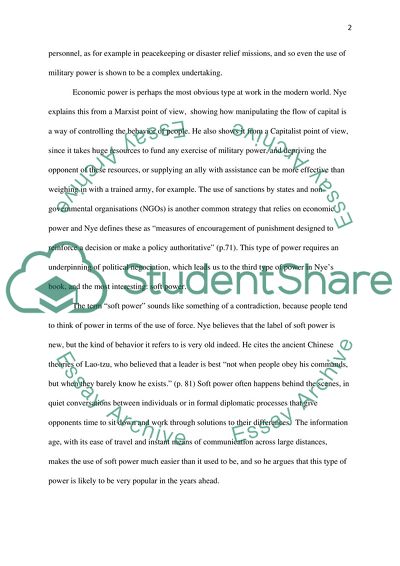Cite this document
(The Future of Power by Joseph Nye Book Report/Review, n.d.)
The Future of Power by Joseph Nye Book Report/Review. https://studentshare.org/sociology/1762444-political-science-book-review-for-the-furure-of-power
The Future of Power by Joseph Nye Book Report/Review. https://studentshare.org/sociology/1762444-political-science-book-review-for-the-furure-of-power
(The Future of Power by Joseph Nye Book Report/Review)
The Future of Power by Joseph Nye Book Report/Review. https://studentshare.org/sociology/1762444-political-science-book-review-for-the-furure-of-power.
The Future of Power by Joseph Nye Book Report/Review. https://studentshare.org/sociology/1762444-political-science-book-review-for-the-furure-of-power.
“The Future of Power by Joseph Nye Book Report/Review”. https://studentshare.org/sociology/1762444-political-science-book-review-for-the-furure-of-power.


